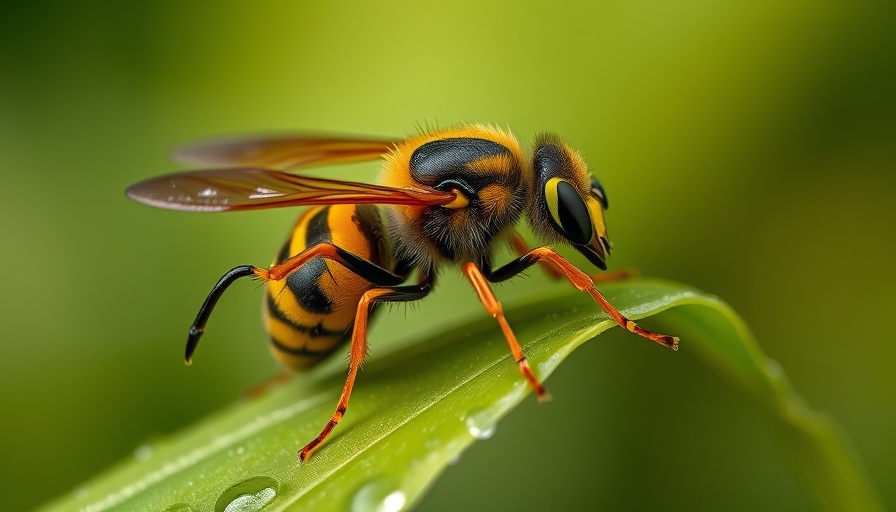
Understanding the Ecosystem Role of Yellow Jackets
Often viewed as a nuisance due to their sting, yellow jackets play a surprisingly pivotal role in maintaining the balance of our ecosystems. Like their relatives, the bumblebees and butterflies, yellow jackets are crucial pollinators. They contribute to the fertilization of a variety of plants, ensuring the continued growth of fruit and flowers that benefit both people and wildlife alike.
Warriors in Your Garden
Yellow jackets are more than just pollinators; they are skilled predators of undesirable pests. Their diet includes harmful insects such as flies and caterpillars. By controlling these populations, they free gardens from many pests, enhancing the health of local flora. This predatory behavior can reduce the need for chemical pesticides, making them a natural ally for gardeners and farmers alike.
Impact of Non-Native Species
However, yellow jackets face challenges from invasive species like the German yellow jacket, which has been noted for its aggressive nature and competitive feeding habits. This competition stresses native yellow jacket populations, threatening their vital contributions to the environment. Concern has arisen regarding how these invasive species will influence ecosystem dynamics, pushing native species, including some valuable pollinators, towards vulnerability or even extinction.
Recognizing Their Value
Despite their negative reputation, yellow jackets should be recognized for their ecological importance. Their ability to control pest populations and pollinate plants illustrates their contribution to agricultural sustainability and biodiversity conservation. Understanding and appreciating the purpose of these insects can foster a more harmonious relationship between humans and nature.
Conclusion: Embrace the Yellow Jacket
Instead of fearing yellow jackets, we should aim to coexist with them. Their ecological benefits outweigh the brief discomfort of a sting. By educating ourselves on the importance of these insects, we can learn to appreciate their vital contribution to the ecosystem and our gardens alike.
 Add Row
Add Row  Add
Add 



 Add Row
Add Row  Add
Add 

Write A Comment